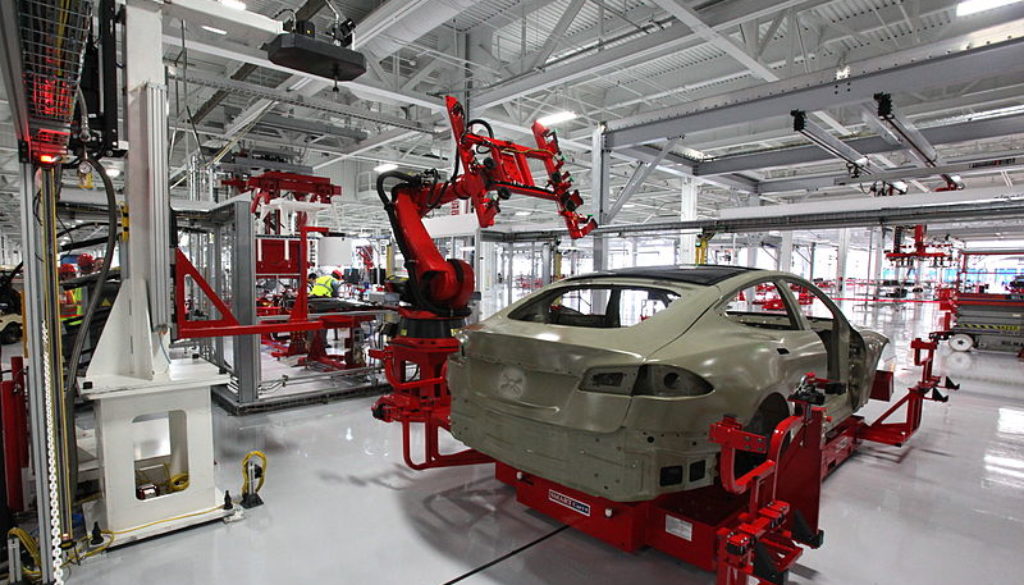Mexico Automotive Manufacturing Overtakes Canada in US Exports
If the current growth trend continues, Mexico automotive manufacturing will soon outperform Japan as the leading vehicle supplier to the United States.
For the first time in history, Mexico automotive manufacturing has moved past Canada in terms of the number and value of light vehicles exported to the US market. The United States imports eight out of twelve cars and trucks that are assembled in Mexico, and last year the US imported 2.64 million vehicles from its southern neighbor. This increase in Mexican export sales occurred despite the fact that new automobile consumption in the Latin American country’s domestic market slumped by 7.5%.
From a broader perspective, a multi-year surge of vehicles imported from Mexico into the US has occurred even as new vehicle sales in the United States have fallen for the past three years. If current trends continue, Mexico will eventually surpass Japan as the leading foreign auto supplier to the US market.
In dollar terms, in 2019, the value of Mexico automotive manufacturing exported to its principal northern trading partner was approximately US $39 billion. While figure represented an increase of 8.1% of Mexico’s sales to the US over the previous calendar year, Canadian sales to its southern neighbor totaled about US $38 billion. This figure represented a 1% decrease in the value of units shipped by Canada’s automotive assemblers in 2018.
For its part, Japan continues to be the leading exporter of light vehicles to the United States. In 2019 the value of automobiles shipped to the US from the Asian economic powerhouse almost reached a total of US $40 billion, although this figure represented a decline in sales of 3.2% compared to those of 2018.
The United States is by far the largest importer of cars in the world. It consumes a 22.8% share of total global exports and is followed by Germany with 7.9% and China with 6.3%, according to the latest data available globally, for 2018.
The Mexico automotive manufacturing infrastructure is developed
The Mexico automotive manufacturing sector has developed with the dual objectives of capitalizing, on one hand, on lower production costs and, on the other hand, its common border with the United States, its main export trading partner.
Over the course of the calendar year 2019, three international automobile assemblers with production facilities in Mexico led the way in increasing northbound exports. They were:
- Honda, whose exports from Mexico to the US increased by 46% over numbers posted over the prior year.
- Volkswagen, which saw its exports from Mexico to the US increase by 36% on a year over year basis.
- General Motors, which sent a grand total of 766,165 cars and trucks to the United States from its Mexican production facilities. This represented an increase of 15% over 2018 numbers and a surge of 40% over its 2011 total.
Beyond Mexico automotive manufacturing, the country’s total industrial production has increased significantly since 2014. This expansion was mainly the result of an increase in the manufacture of primary metals and in the production of parts for the automotive and transportation equipment sectors. This increased output resulted in a higher value of exports to the United States.
Many OEMs have a presence in the automotive manufacturing sector
In addition to the automotive assemblers listed above, other OEMs with a presence in Mexico include Audi, the Fiat Chrysler Automobile Group (FCA), the Beijing Automotive Industry Holding Co., Ltd. (BAIC), Ford, General Motors, Honda, Kia, Mazda, Nissan, and Toyota.
Additionally, Mercedes Benz production is associated with Nissan-Daimler, Hyundai produces in Mexico through its partner company, Kia, and BMW, which opened a plant in the Mexican state of San Luis Potosí in June of 2019. As a recent entrant to Mexican automotive manufacturing, the new BMW plant represents a capital investment of more than US $1 billion and already employs 2,500 people. The facility will eventually have the capacity to produce 175,00o units per year.
The above-listed companies, when taken together, produce more than 40 brands and 500 models in Mexico. Approximately 82% of this vehicle production is devoted to exports, while the remaining 18% of units produced are consumed in Mexico’s domestic market.
In addition to Mexican automotive manufacturing, the production of light vehicles plays a key role in Canada’s economy. It is one of the country’s largest manufacturing sectors. According to the World Trade Organization (WTO), Canadians directly employed in the industry number more than 130,000 individuals. Automotive manufacturing in Canada is highly concentrated in the province of Ontario where 100% of the country’s light vehicle production capacity is installed.
Finally, Japan reached its highest export rate of cars to the US market in 20017, when the total value of production reached US $44.6 billion. Meanwhile, South Korea’s performance on this indicator was the most dynamic in 2019. It’s exports to the United States rose by 15% when compared to the prior year to reach a value of US $14.1 billion.





